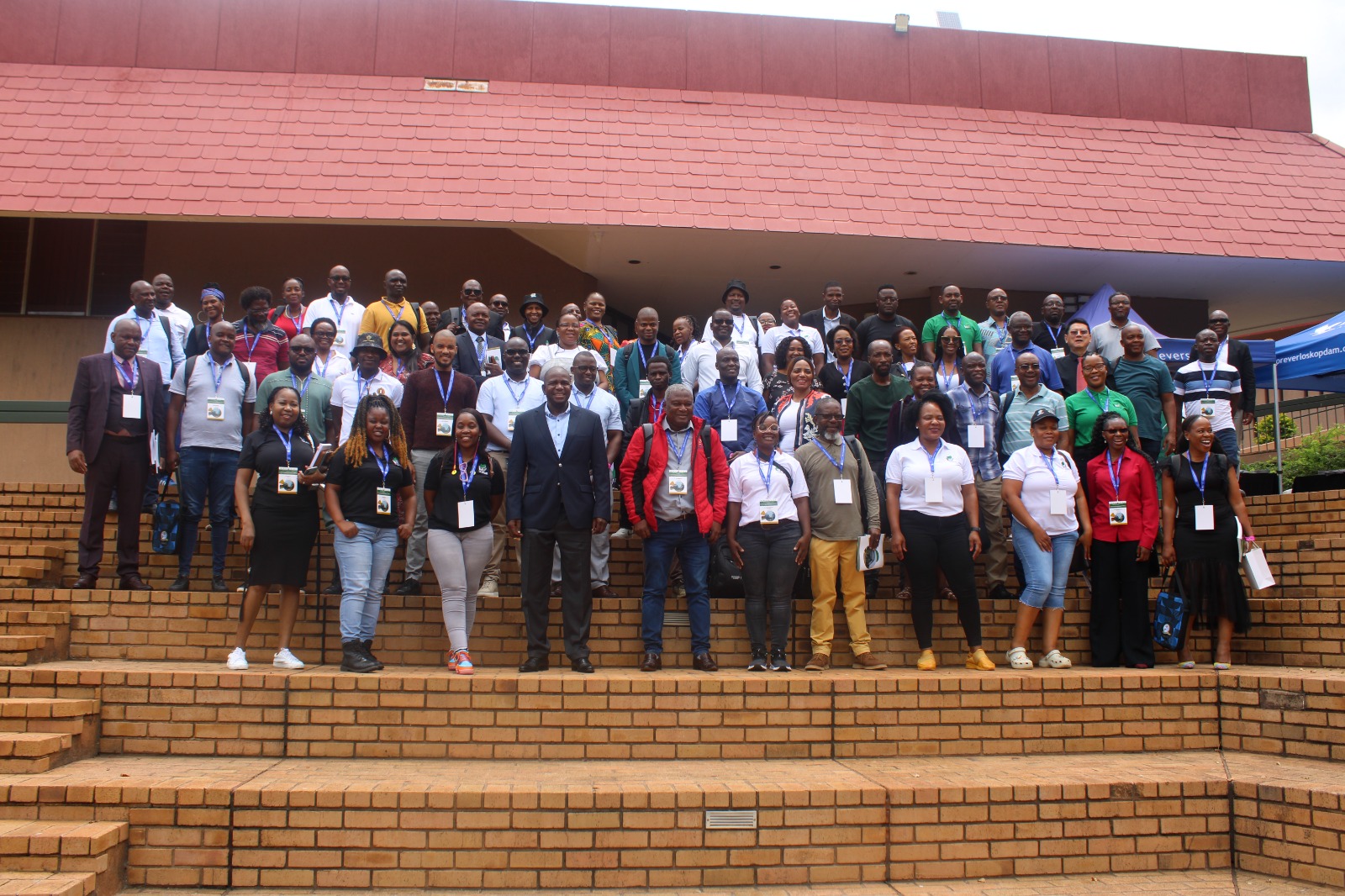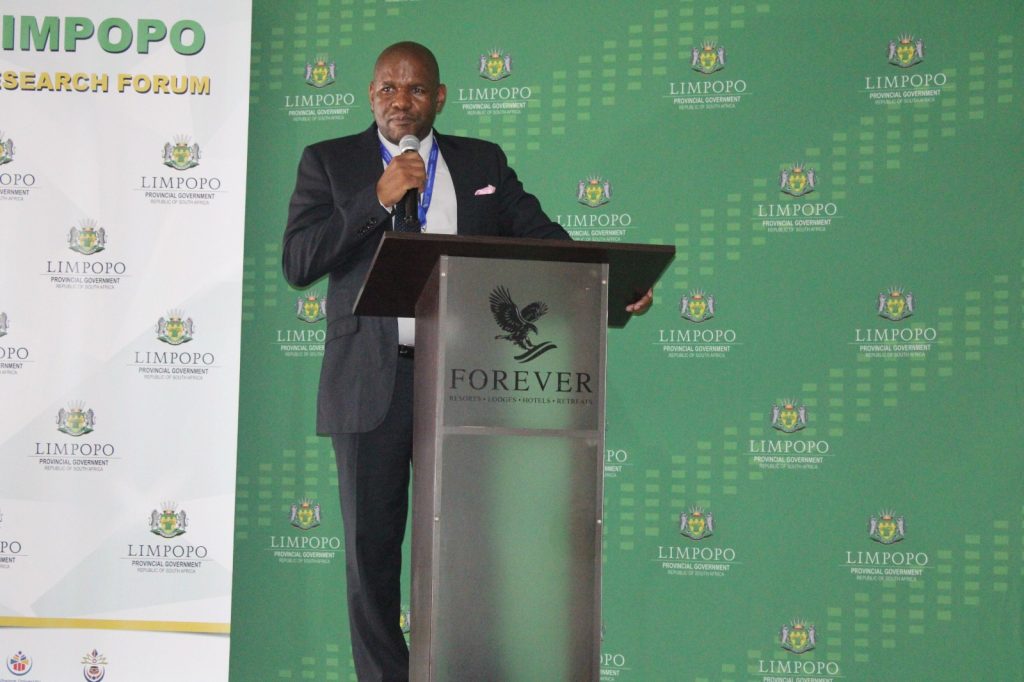By Oratile Matsapola
Date: February 15, 2024
The South African Association of Public Administration and Management (SAAPAM) Limpopo Chapter and the Limpopo Research Forum successfully hosted a thought-provoking conference at the Middleburg Loskop Dam Forever Resort from February 12-14, 2024. The conference brought together over 200 delegates from various academic and public institutions, including the Tshwane University of Technology (TUT), University of Limpopo (UL), University of Venda (UNIVEN), and the University of South Africa (UNISA), alongside public sector professionals.
The three-day event, co-hosted by SAAPAM, aimed to discuss and address pressing issues facing Limpopo Province, including poverty, unemployment, and inequality. These issues were at the heart of the conference’s discussions, with the role of official statistics in supporting sustainable development taking center stage.
Keynote Speaker Dr. Maluleka Risenga Discusses Poverty and Development Challenges
The first day of the conference was graced by the presence of Dr. Maluleka Risenga, who delivered the keynote address on “Official Statistics as the Bedrock for Sustainable Development.” Dr. Maluleka outlined the many challenges that Limpopo faces, despite the province’s potential. He pointed out that Limpopo has one of the lowest household incomes in South Africa, alongside a high fertility rate and lack of economic strength. This economic disparity has led many young people, starting at the age of 15, to migrate to Gauteng in search of educational and employment opportunities.
During the panel discussion following Dr. Maluleka’s presentation, Professor Mankolo Lethokolo raised a key question: Are the statistics accessible to the general public, especially in a format that is understandable in local languages? In response, Dr. Maluleka emphasized that budget cuts to Statistics South Africa (StatsSA) since 2016 have hindered the speed and effectiveness of public data dissemination.
Focus on Data-Driven Solutions for Limpopo’s Challenges.
The primary goal of the Limpopo Research Forum was to bring together stakeholders to discuss strategies for addressing the province’s socio-economic issues, with a particular focus on the role of official statistics in promoting sustainable development. Delegates were divided into different venues to continue presenting research, which covered a range of topics aimed at leveraging data for improved decision-making.
One key session featured Professor Thanyani Madzivhandila, a member of SAAPAM, who presented on “The Role of Indigenous Knowledge Systems (IKS) in Just Energy Transition in South Africa.” He emphasized the importance of integrating IKS with modern energy solutions to ensure a just and effective energy transition in the country.
The forum also provided delegates with valuable insights into the importance of data-driven decision-making. With the right information, stakeholders are better equipped to understand the complexities of issues such as poverty, inequality, and unemployment, and can collaborate on solutions that promote long-term sustainability.
Collaboration for Change: Partnerships and Future Solutions
The conference provided a platform for stakeholders to engage in meaningful discussions, share experiences, and explore new solutions to the challenges facing Limpopo. By focusing on collaboration, delegates identified opportunities for partnerships, resource sharing, and collective action aimed at improving the province’s socio-economic conditions.
In the final session, delegates elected new leadership for the SAAPAM Limpopo Chapter. The newly elected officials are:
- Chairperson: Prof. Harry Mundzedzi
- Deputy Chairperson: Dr. Jackinah Mokgokong
- Secretary: Prof. Ricky Mukonza
- Deputy Secretary: Prof. Mankolo Lethoko
- Treasurer: Prof. Thanyani Madzivhandila
The event concluded on a positive note, with the belief that the insights gained and partnerships forged during the forum will play a crucial role in addressing Limpopo’s development challenges. The collaborative approach to solving the province’s issues promises to foster positive change and contribute to the broader national goal of sustainable and inclusive development











Excellent.
How have budget cuts to Statistics South Africa since 2016 affected public data dissemination, according to Dr. Maluleka Risenga? Visit us Teknik Telekomunikasi
What an inspiring and impactful gathering! It’s encouraging to see academic institutions and public sector professionals coming together to tackle pressing issues like poverty, unemployment, and inequality in Limpopo. The emphasis on data-driven decision-making and the integration of indigenous knowledge into sustainable solutions shows a deep commitment to both innovation and cultural relevance. Kudos to SAAPAM and the Limpopo Research Forum for creating a space where meaningful dialogue and collaboration can thrive. This kind of initiative is exactly what’s needed to drive real, lasting change in our communities.